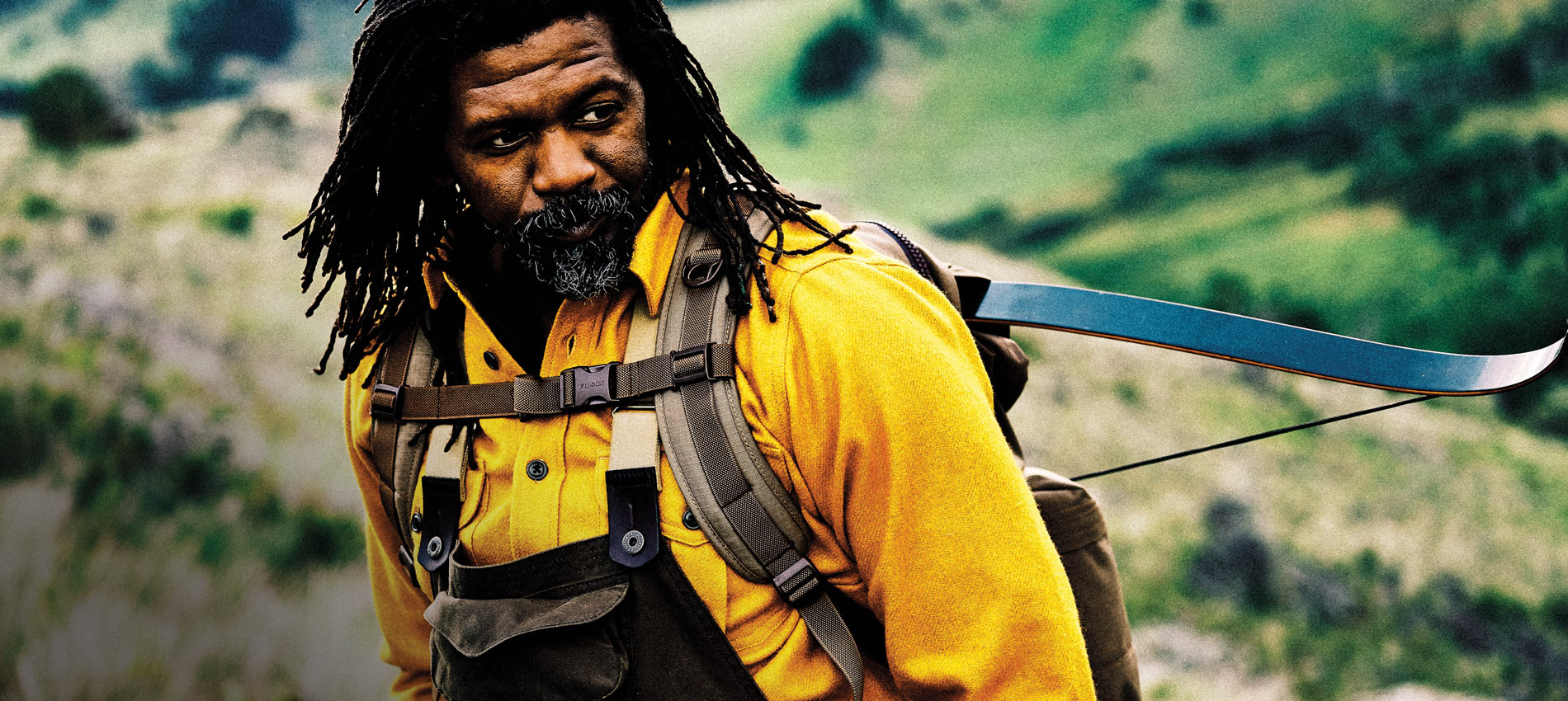Courtesy of Filson | Photos by Travis Gillett
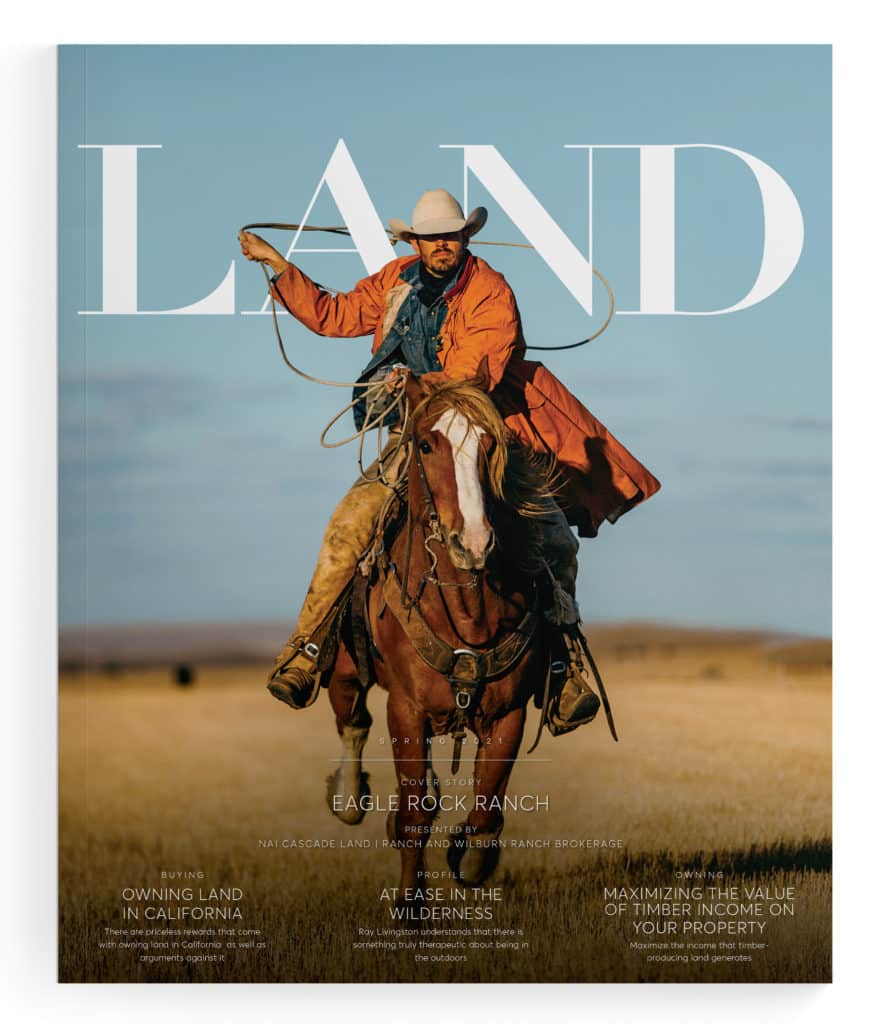
This article is featured in the Spring 2021 issue of LAND magazine. Click here to find out more.
There is something therapeutic about being in the outdoors. A rebirth of the soul seems to happen each time dirt is ground under your boot, branches brush off your jacket, or an unfettered wind lightly chills you. It appears that the moment you leave the veneer of society behind and venture into the wilderness, things change for the better. It is that feeling that has guided Ray Livingston throughout his entire life.
A big game hunter, upland bird hunter and fisherman, he resembles a man from a different time; one of the woodsmen who roamed the Pacific Northwest’s mountains and valleys, his home, back in the eighteenth century. He is a person who can and has survived in the wilderness only with items that trappers carried in their packs centuries ago.
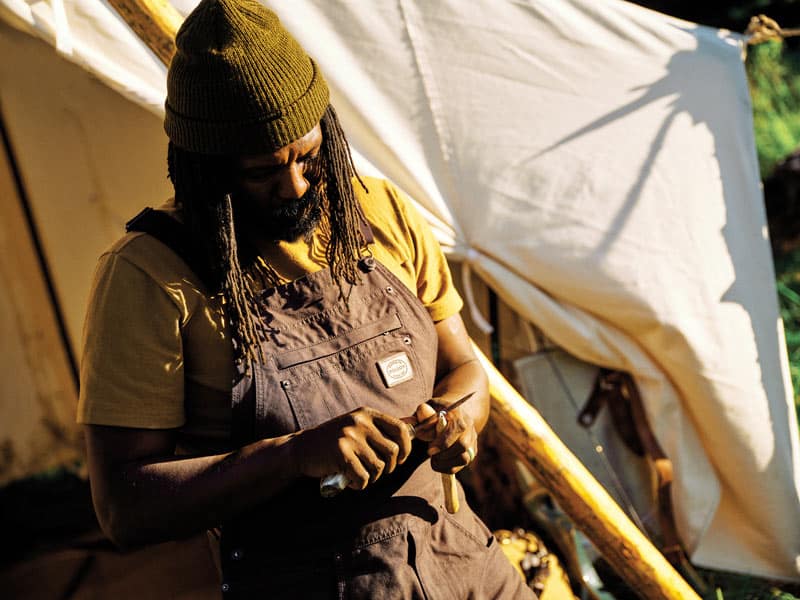
A prodigious pile of dreadlocks, a bushy beard, and a bright smile are the first thing one notices when you meet him, not his wide-brimmed hat, fur jacket, and large knife hanging at his side. His youthful energy and unbridled optimism seem out of place from a man approaching his fifth decade on this planet. “Cool stuff and interesting experiences seem to just come my way, I try to say yes to them whenever they present themselves. I like to share those experiences with people, to show them my struggles, in a positive light, and to show there is always hope,” he says. “Life is a story of overcoming odds, staying positive despite our struggles, and realizing the blessings in the outcomes, regardless of whatever the situation pops up.”
His life path more closely resembles the winding switchbacks he often hikes when in the backcountry, than the straight shot asphalt roads he played on as a child in Portland. He excelled in track and field at the University of Oregon, where he was a thirteen-time All Pac-10 pole vaulter, long jumper and hurdler and two times an All American in the decathlon. From there, he followed the trail most follow. He had a steady job, a small house, and a growing family, but he felt unfulfilled.
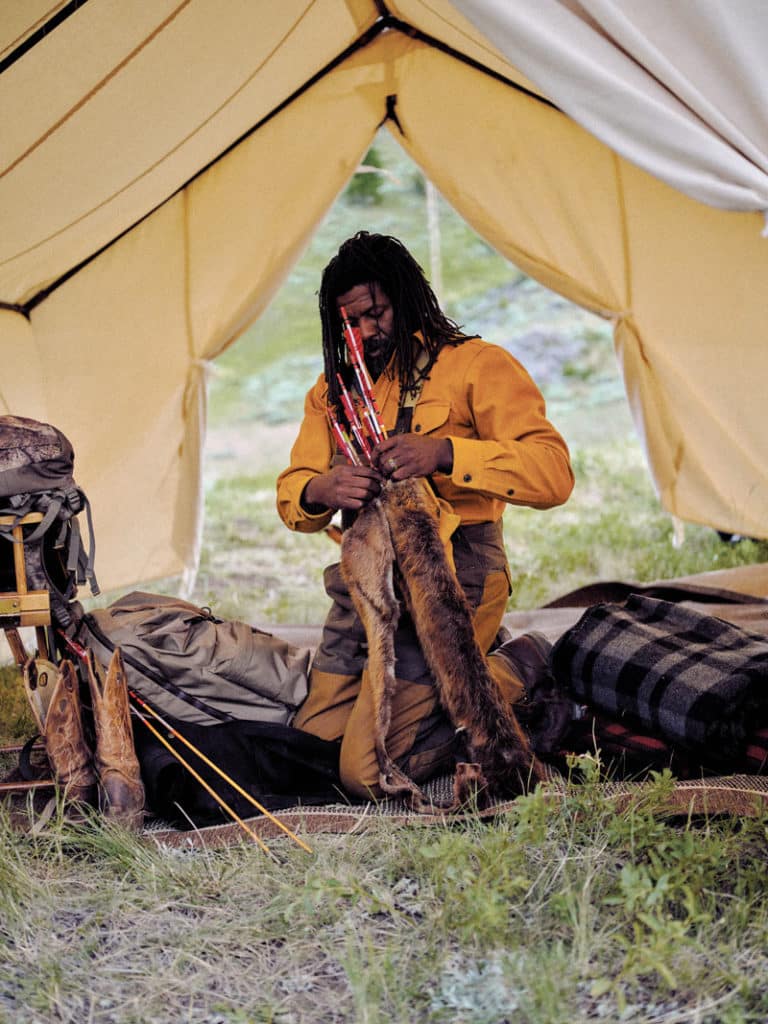
A decade ago, he decided to step off the beaten path, the one that was easy to follow, and start to forge his own way, to follow his own compass. He left a job that had him away from the things he loved, the wilderness and family. Things were good for a bit, but no journey is simple, and neither was his. When his marriage terminated, he decided to do something radical. He moved into the forest and lived in a small camper trailer for extended periods, all while still working his regular job.
His time outdoors helped him center and clear his mind. He sought solace in the outdoors and looked for parallels in nature to help him deal with the obstacles in his life. “In our modern world, we spend our time and energy getting stressed out over what is essentially someone else’s problems,” he says. “Nature does not deal with that noise; it deals in the now, solely. If you want to see unbiassed examples of what it means to live a good life, look to nature.”
As he spent more and more time outdoors for extended periods, he developed survival skills. Instead of heading out with a loaded pack, he would build shelters from scratch, forage for meals, and cook over open fires. Soon he was blessed with another challenge. It came when the casting department from the History Channel reached out to him. They wanted him to be a participant on season six of Alone, a show that drops individuals off in the wilderness with only a few items and tasks them with surviving on their own with no outside assistance.
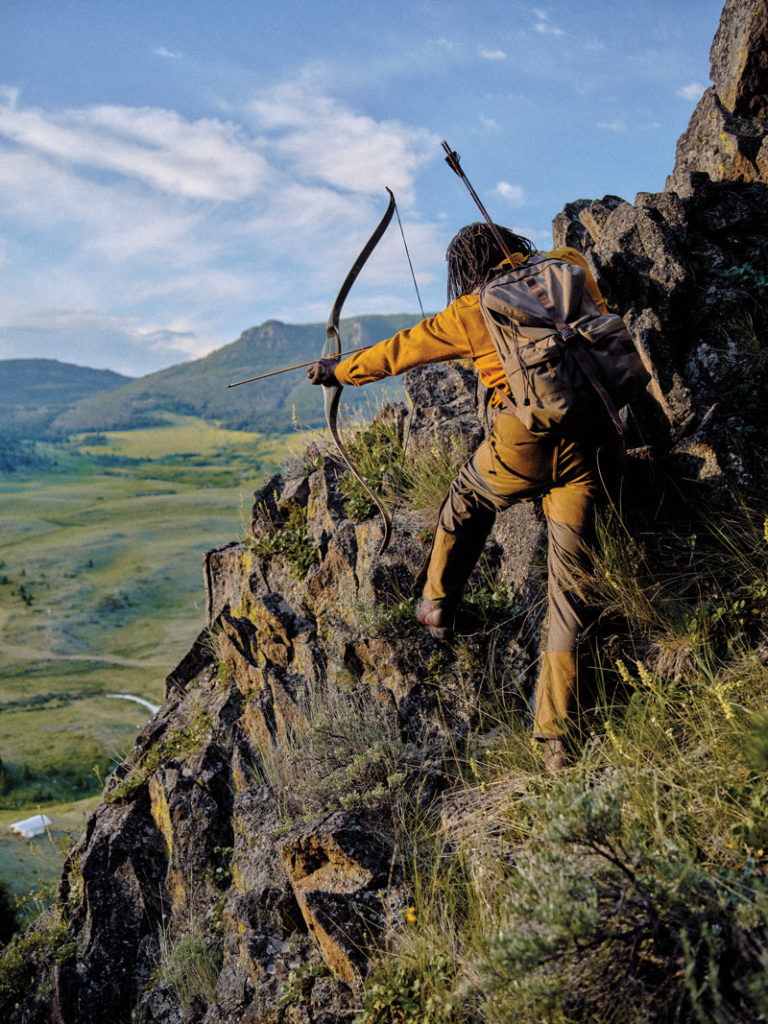
He spent nineteen days isolated on the shores of Great Slave Lake in the Northwest Territories of Canada, less than 100 kilometers south of the Arctic Circle’s southern border. He relished the experience and departed because of a lack of food resources at his location. After considering the situation, he felt it was time, that he had “Nothing left accomplish.” He had done all he came to do and had seen what was meant for him to see by being there. He could survive in the harshest of conditions. He was at peace and with new perspective, he could now chase his dreams.
Following their dreams lead him and his new bride Angie, to move further north, where he spends his time roaming amongst the hills surrounding his new home in Kettle Falls, Washington; in the Northeast corner of the state. He lives as one with the land, raises pigs, and just enjoys the benefits of living in a wild landscape as much as possible. All while dispensing good cheer and his hard-earned wisdom to any that he meets. “We put barriers up and we tell ourselves there is no way we can live our dreams. However, the truth of the matter is, we can do anything we set our hearts to. We only need to make a choice and put our thoughts and energy into realizing the lives we want for ourselves. If we do that, anything is possible.”

Established in 1897, Filson is the leading outfitter and manufacturer of unfailing goods for outdoor enthusiasts. Built upon a reputation for reliability, they’re a favorite among anglers and hunters, engineers and explorers, mariners and miners, and anyone who refuses to stay indoors. Find out more→ Filson.com
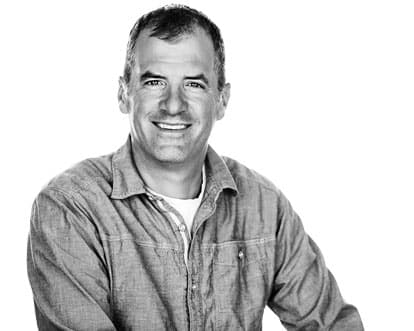
Hudson Lindenberger is an award-winning writer who believes that life is full of interesting stories, and his goal is to tell as many of them as possible. He has written about everything from people changing their lives and the worlds that surround them, to the latest gear and beer, with a focus on travel, adventure and the environment. As a digital nomad, he has spent the last several years on the road, writing about both local and universal topics, while documenting it all with his camera. Find out more→ HudsonLindenberger.com
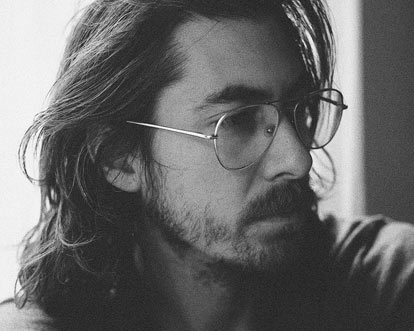
Travis Gillett is a commercial, fine art and editorial photographer based on the Olympic Peninsula in Washington State. He finds beauty beyond the shadows and in those operating under the radar, and often finds himself working with subcultures and in niches to share their particular pockets of light. Find out more→ TravisGillett.com
